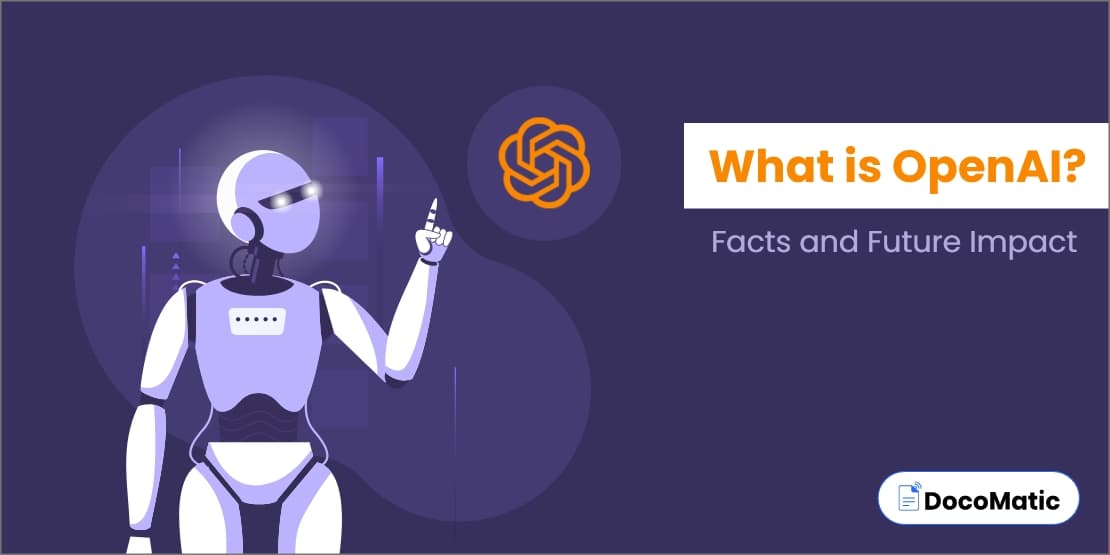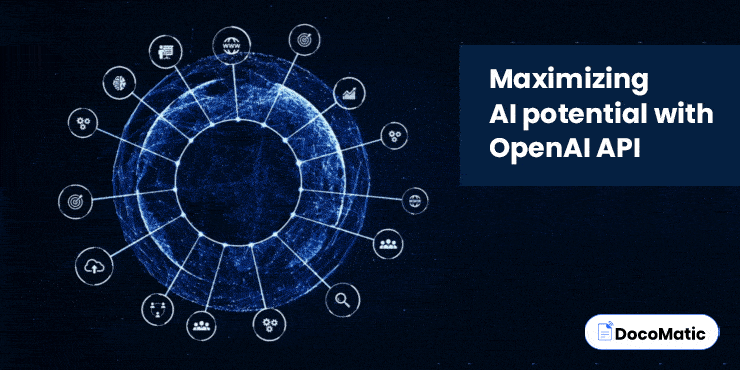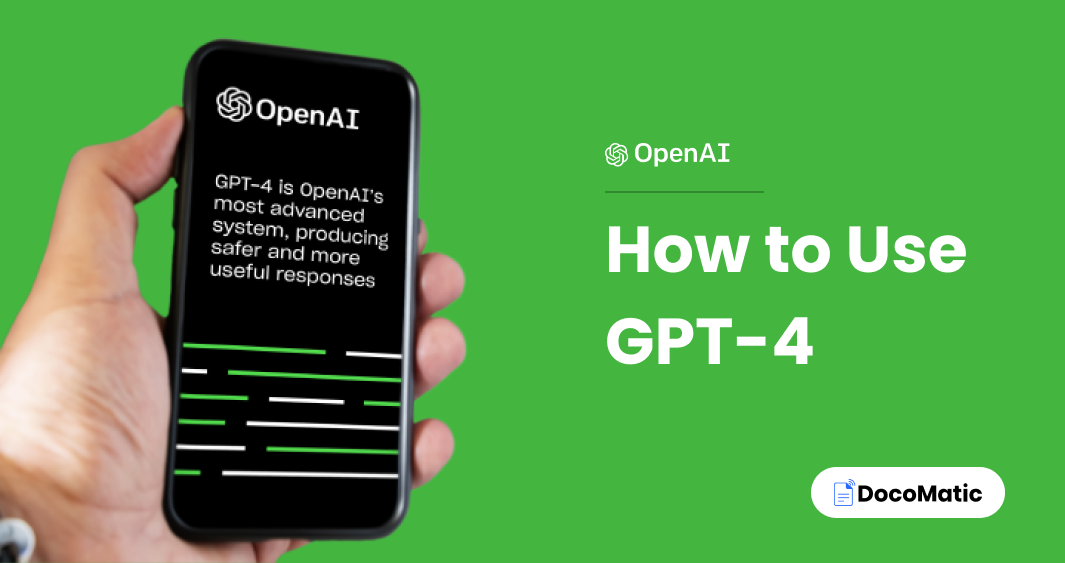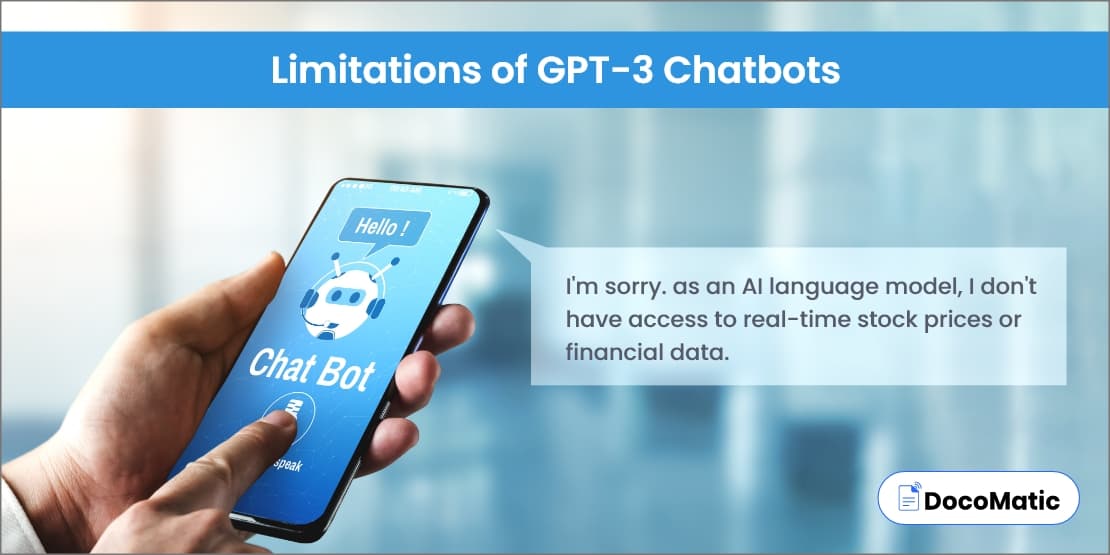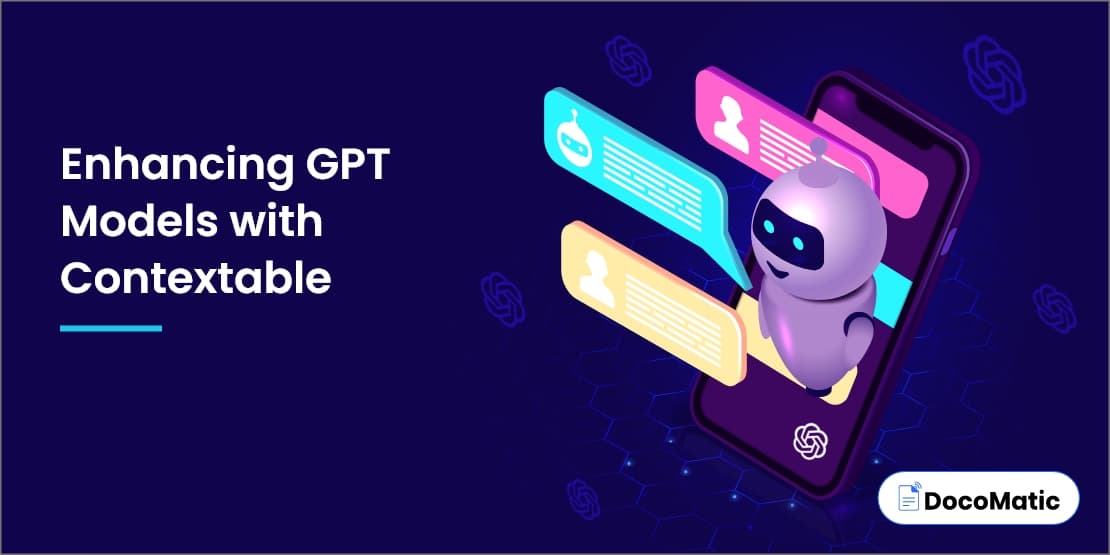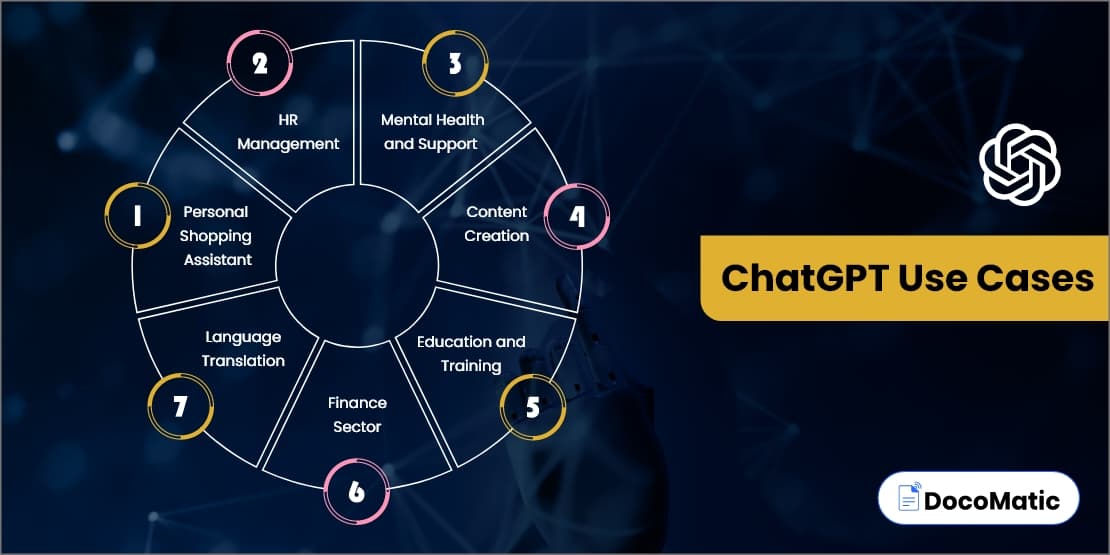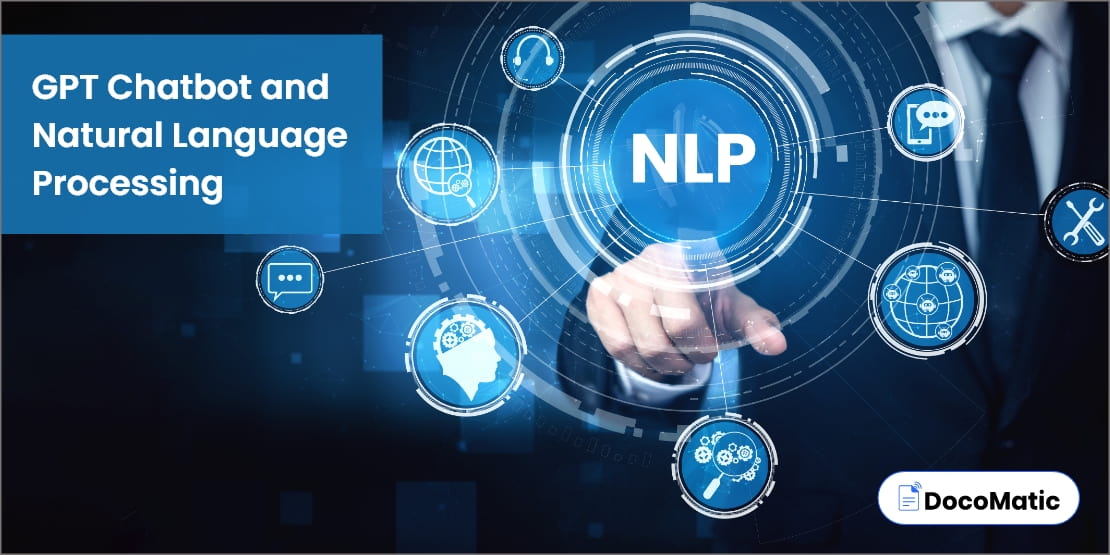The digital genius brain of ChatGPT has led to people and, most importantly, business owners chatting with it all day!
The company behind this chatbot, OpenAI, has a staggering number of 21.1 million monthly active users as of 2022. There’s no doubt that we are up for a colossal revolution in the tech world! The advancements in technology are making data and coding capabilities easily accessible to everyone.
This blog aims at revealing answers pertaining to “what is OpenAI?” and how it will impact us all moving forward. Keep reading to find out its use cases and what it has achieved so far.
Table of Content
OpenAI: History and Milestones
OpenAI, an artificial intelligence research laboratory, aims at benefiting humanity in a friendly and responsible way. The non-profit research company is on a mission to make artificial general intelligence (AGI) safe for everyone.
Elon Musk, Sam Altman, Greg Brockman, Wojciech Zaremba, Ilya Sutskever, and John Schulman jointly founded OpenAI in 2015. They started this company with the goal of building AI software as transparently as possible and providing open-source products for the world. Yet, there are some advantages and disadvantages of OpenAI that are making other market players rise in competition.
Milestones and achievements of OpenAI over the years
The initial focus of the company was to develop AI for video games and other useful applications.
- In 2016, OpenAI released an open-source reinforcement learning (RI) toolkit, which was meant to train AI agents.
- After 2 years of research and development, the company introduced GPT aka Generative Pre-trained Transformer.
- The power of OpenAI was known when it won the Dota 2 game in 2019, thus gaining a massive feat in the field of eSports.
- It developed and launched DALL-E in 2021, which helped create images from text.
- Heading to November 2022, OpenAI released ChatGPT, a language model chatbot built on top of GPT-3.
- OpenAI received rewards and recognition from the AI community and beyond, including being named one of MIT Technology Review’s “50 Smartest Companies.”
Technologies and Models of OpenAI
With a focus on developing AI systems capable of learning from experience and solving complicated tasks, OpenAI has developed many technologies. These include computer vision, natural language processing, robotics, and reinforcement learning.
Here are a few of the breathtaking technologies and AI models created by OpenAI:
1. GPT-3
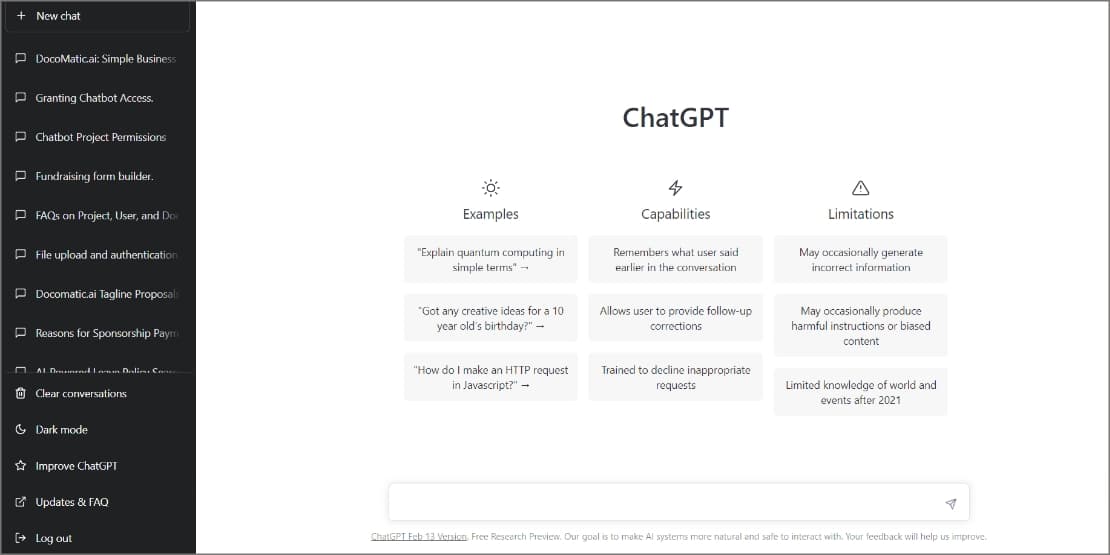
Generative Pretrained Transformer 3 (GPT-3 ) is OpenAI’s advanced language model. GPT’s are neural networks, meaning they are machine learning models trained by taking inspiration from the human brain’s structure. This train-and-learn model can understand the context and provide answers to questions with appropriate reasoning. You can also make the most out of GPT-3 to brainstorm ideas, write codes, translate content, or generate write ups of different formats or haikus as the one below:
In the still of night,
Whispers of the wind so light,
Stars shine ever bright.
If you have been wondering how to train and optimize OpenAI’s GPT-3, you can do it with the relevant tips and strategies. With the right understanding of assigning task descriptions, prompts, and feeding training data, you can get the desired outcome.
2. DALL·E
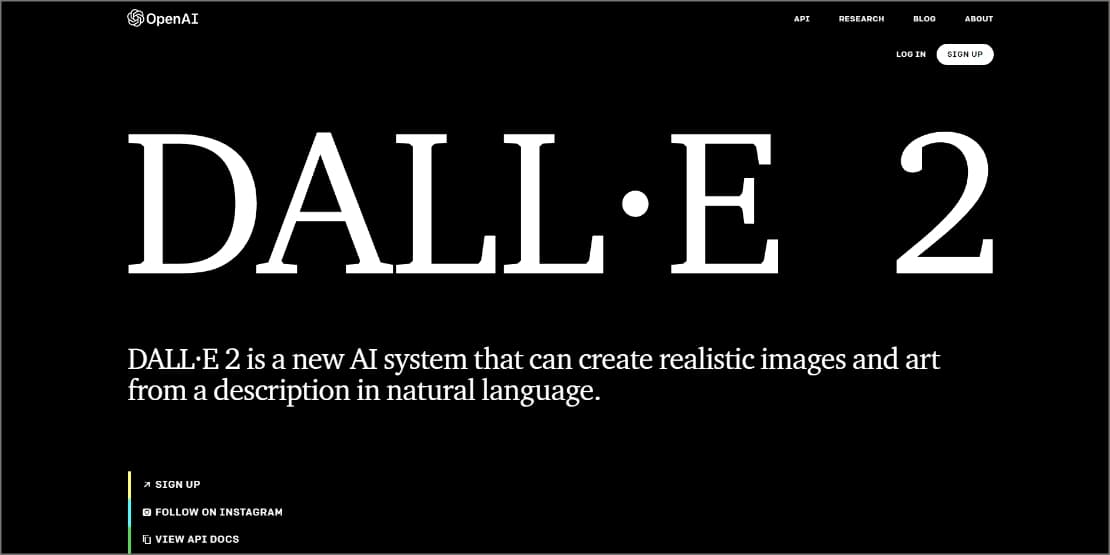
Have you ever imagined if you could create images using textual prompts? Well, DALL·E is just the AI model you may be looking for. It actually does the work for you and comes in handy for many applications. This transformer architecture-based model is trained such that it generates high-quality and unique images.
3. OpenAI Gym
Another one on our list is OpenAI Gym, a toolkit used to develop and compare reinforcement learning algorithms. It has gained popularity among researchers in the field of artificial intelligence as they can create and evaluate algorithms and models.
4. OpenAI Five
The winner at playing Dota 2 was none other than OpenAI Five, a reinforcement learning model infused with high skills. Not only does it learn from previous experiences, but also improvise with time. This model has the ability to be one of the most groundbreaking AI models in reinforcement learning algorithms and AI research.
5. Jukebox
Jukebox is a neural net that creates music as raw audio, including basic singing. Not only this, it also generates music in different artist styles and genres. While there’s a lot of future scope, they are doing the needed research into problems like intellectual property rights and bias. The company is also connecting with people who work in the relevant domains.
7. The GPT-4
OpenAI has already started working on GPT-4! Where GPT has a limited number of parameters to make text predictions, ChatGPT4 may have an exponential rise in these parameters. It is potentially going to be released in 2023.
Future Impact of OpenAI to the Society
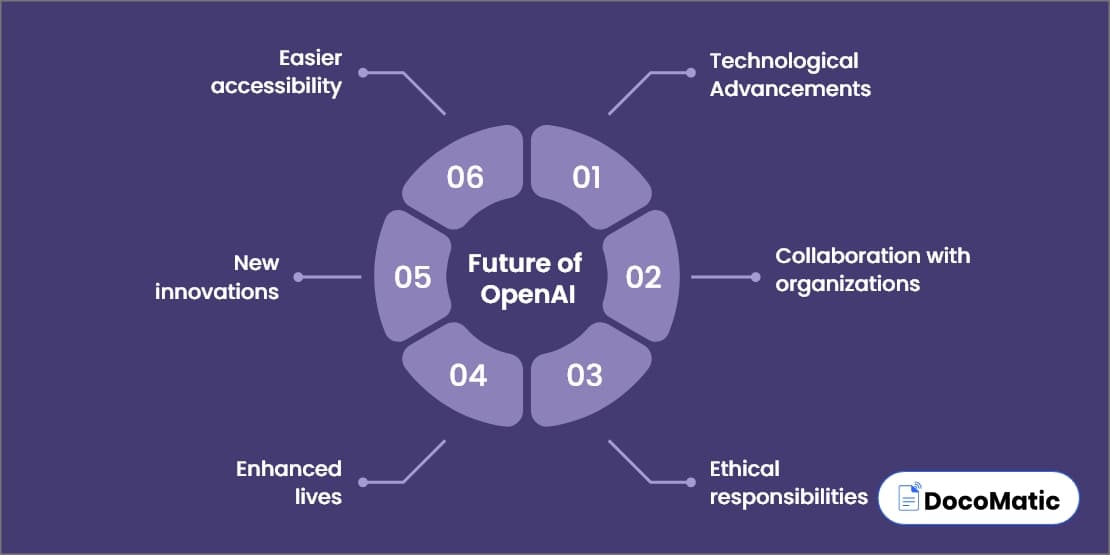
OpenAI is on the front seat of exploring new horizons and setting future goals. But let’s not forget the OpenAI alternatives that are giving a competitive edge to it.
- Technological advancements: OpenAI mainly aims at advancing in AI research and technology by surpassing the limitations of what AI can do. Among its various plans, the company will continue to develop innovative technologies and models.
- Collaboration with organizations: We will see collaborations of OpenAI with several industries, including entertainment, finance, and healthcare. By teaming up with these industries, it plans on creating a positive impact, thereby solving many problems of the society.
- Ethical responsibilities: By helping mitigate concerns using the best practices in AI development and deployment, OpenAI aims at helping future generations. It plans to be responsible and ethical to ensure that AI is utilized for the betterment of humanity.
- Easier accessibility: OpenAI is aiming to make AI easily accessible to everyone even if they belong to a different technical background. Thus, they are making it easier for researchers and developers to use the power of AI. It is also making investments in training programs and educational fields to help unleash the potential AI geniuses of tomorrow.
- New innovations: By bringing innovative technologies in the healthcare, entertainment, and other sectors, OpenAI is helping companies create AI solutions. This leaves a lot of room for building new job and business opportunities, along with new services and products.
- Enhanced lives: Needless to say, OpenAI can enrich the lives of everyone around the globe. Its AI-driven technologies can help solve real-world issues in less time. For instance, AI can be used to help diagnose diseases, improve access to education, and reduce poverty, among many other things.
FAQs
OpenAI has a huge number of investors who have come to support the company. Microsoft recently announced a colossal investment of $10 billion in ChatGPT.
The other investors and companies include a few of the below names:
- Elon Musk
- Greg Brockman
- Infosys
- Sam Altman
- Reid Hoffman
- Peter Thiel
- Jessica Livingston
- Amazon Web Services
- Khosla Ventures
OpenAI is still in its early stages of research. This leaves room for growth and the need to tackle various challenges before it can be used full-fledgedly. The key challenges are safety and trustworthiness of this AI model.
Various tech companies are involved in artificial intelligence. They include the below:
- H2O.ai
- IBM
- Microsoft
- Amazon
- Metaverse platforms
- DeepMind
Conclusion
Advancements in machine learning algorithms and programming language based models brought AI in the spotlight. Being helpful in life and business, AI tools can make seamless. While automating repetitive tasks, giving personalized insights, and enhancing the products and services, OpenAI needs to give a proper commitment.
OpenAI is undoubtedly leading in the field of AI and is working dedicatedly in the area of research and development. It has developed many cutting-edge models and technologies in the world of artificial intelligence, and won’t stop here.
However, it must ensure that its methods and systems are not used for malicious intentions. Moreover, remaining unbiased towards a particular group of people is also important. OpenAI can be a pioneer in AI given that it ensures their systems are not vulnerable to potential exploitations or manipulations.
Looking at the demand for AI-based chat assistance, if you have made up your mind to have your own chat assistance for business documents, then DocoMatic is the world’s leading AI-powered Chatpedia solution to opt for.
